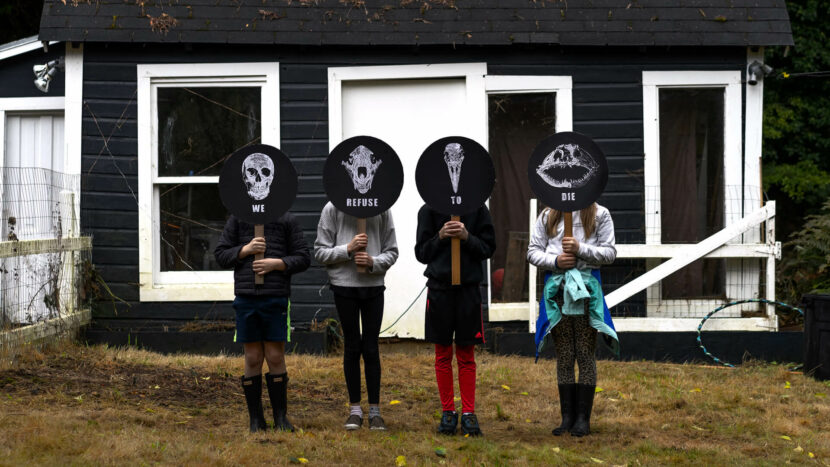[blog_listing class_all=”green-inside”]

We Refuse to Die
A new multi-year national environmental justice art collaboration incorporates visual art produced for both museum and outdoor exhibition, public rituals, gatherings within and across communities, and artistic visuals for performances, public hearings, and protest.
read more...